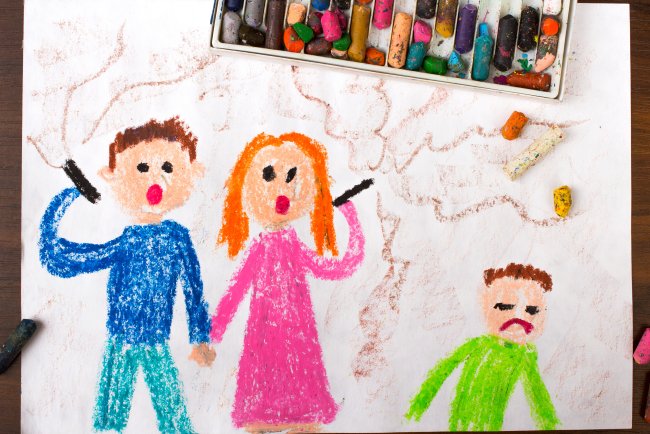Teaching Values and Morals: Instilling Character in Children
Instill character in children through effective methods of teaching values and morals. Explore engaging ways to shape the ethical foundation of the younger generation.

Introduction
As parents, one of our most important roles is to help develop our children into ethical, compassionate individuals. We want them to grow up with strong morals and values that will guide them to make good choices throughout their lives. However, instilling character in a child is no simple task. It requires constant effort through both our words and actions to teach valuable life lessons.
In this post, I will explore different approaches we can take to effectively instill important values like kindness, honesty, responsibility and respect in our kids. I will also share examples of how to model good behavior as parents and reinforce positive messaging through everyday interactions and experiences. The goal is to equip parents with practical strategies for raising children of strong character.
Leading by Example
One of the most impactful ways to teach values is by demonstrating them through our own conduct. Children learn far more from watching what we do than from what we say. As the old adage goes, “actions speak louder than words.” If we want our kids to be honest, we must model honesty in all of our dealings. If we want them to be kind and compassionate, they need to see us treat others, including each other, with kindness and empathy.
A great place to start is examining our own behaviors and manner of speaking. Do we keep our word? Are we considerate of others’ feelings? Do we resolve conflicts respectfully? How can we improve in these areas so that our kids see us living the values we hope to instill in them? Mean what we say and follow through on commitments, no matter how small. Apologize when we’ve made a mistake. Find respectful ways to handle disagreements.
Our values are also reinforced through daily routines, responsibilities and traditions. Involving children in tasks like meal prep, chores, acts of service and quality family time shows the importance of contributions, teamwork and togetherness. Habits like saying please and thank you, holding doors for others or cleaning up after play show manners and consideration. Spiritual or cultural practices surrounding holidays can highlight values like compassion, gratitude and community. Find routines and experiences that reinforce the character you want to foster.
Bonding through books and discussion
Literature is a highly effective way to introduce morals and prompt values-based conversations. Reading stories together gives vocabulary and context for discussing emotional intelligence, decision-making and ethics. Ask questions that bring up themes like honesty, fairness, courage, empathy and more. Encourage children to reflect on how they would handle similar situations.
Suggested picture books to start values discussions include "The Book With No Pictures" by BJ Novak to teach humor and creativity through jokes. books like "The Giving Tree" by Shel Silverstein highlight kindness and unconditional love. For perseverance and optimism, "The Little Engine That Could" is a classic. For older kids, novels like "To Kill A Mockingbird" and "Diary of Anne Frank" powerfully illustrate courage, justice and humanity. Find books that align with your goals and make reading time an opportunity for meaningful dialogue.
Praising the right behavior
Our praise goes a long way in shaping a child's attitudes and development. But it's important to give positive feedback for demonstrations of character, not just achievements or talents. Notice and commend acts of caring, integrity, responsibility and other virtues. For example, say "I'm proud of how you helped your friend when they fell" rather than just "Good job!" Point out character in others too by modeling gratitude. Children will learn what behaviors bring approval and internalize values if we give praise for living them out.
On the flip side, avoid harsh criticism which can damage self-esteem. Constructive guidance works better than shaming. If a mistake is made, explain why the action was wrong and help problem solve for next time. Come from a place of understanding, not anger. Praise the effort to do better going forward over dwelling on past failures. With patience and compassion, we can redirect undesired behaviors while maintaining a child's positive self-regard.
Teachable moments in everyday life
Some of the best learning takes place during unplanned lessons that arise in day to day life. Be on the lookout for “teachable moments” and use them to illustrate values. For example, if your child sees someone upset and wants to help, discuss kindness. If they forget something, talk about responsibility. If there’s a debate over sharing, explain fairness. Frame incidents in a positive yet instructive way. Ask how they think they should respond next time and what values are important in that situation. Turn everyday occurrences into memories that stick.
Other everyday scenarios that provide teachable character lessons include encounters with different people like the mail carrier or grocery store clerk. Financial decisions and shared allowance or chore money present math lessons coupled with generosity,saving and delayed gratification. Community service projects offer opportunities for citizenship, compassion and humility. Be ready with relevant, values-focused discussions so current events, media and interactions become learning experiences too.
Explaining the "Why"
Simply telling kids what to do without adequate reasoning rarely inspires internal motivation or behavior stickiness. Children are naturally curious - help satisfy their why questions by clearly explaining the rationale behind core values. For example, share how honesty creates trust in relationships. Empathy increases understanding and helps avoid hurt feelings. Hard work leads to accomplishment and pride. Tidying up keeps shared spaces pleasant for everyone. Giving reinforces compassion. Provide context behind virtues to foster a deeper appreciation of their true importance.
Discuss both short and long term effects too. Be transparent that while kindness may require extra effort today, it feels good and builds strong bonds over time. Similarly, poor choices could mean short-term gains but long-term costs. Help children connect values with positive real world outcomes. Give relevant examples from your own life experiences on how virtues have served you well or guided you away from trouble. The why sticks far better than just the what or how.

Allow natural consequences
One of the best teachers is experience. When safe and appropriate, let natural consequences play out rather than intervene to “save” children from all mistakes. For example, if toys are left scattered and stepped on, having them pick up the mess themselves reinforces responsibility. If they forget lunch money, let them experience the disappointment rather than bailing them out. Within reason based on their age and circumstances, consequences like these help connect actions with logical results.
Of course, be there to comfort, encourage and advise through the process. But avoid oversheltering or cleaning up after them at the first sign of discomfort. Help them reflect on how their choices led to the outcome and brainstorm better decisions next time. Consequences grounded in reality can be impactful character-building life lessons when paired with parental warmth, reassurance and guidance on doing better. The lessons of experience truly stick when children face natural repercussions of their actions.
Have "Character Chats"
Occasional dedicated character talks allow for deeper discussions on virtues and values. Designate “character chat” time, perhaps during regular drives, walks, chores or before bed. Ask open-ended questions about situations they've witnessed or been a part of involving ethics, decision-making and personal growth. Discuss tensions between desires and responsibilities. Brainstorm strategies for handling peer pressure, self-control and challenges of strong emotions. Make it conversational rather than lecture-style.
Give children space to freely share thoughts, feelings and examples from their lives too. Validate their perspective while gently adding your own experience and wisdom. Keep the talk upbeat, solution-focused and empowering. Through caring conversations, help children think critically about who they want to become and how character shapes that. These meaningful chats foster self-awareness and internal motivation that will last into adulthood.
Role playing ethics dilemmas
Actively engaging children through exploration of complex scenarios helps cement concepts of right from wrong. Come up with real-world examples involving integrity, fairness or compassion and play out possible responses with role-playing. You act as one character and invite your child to take on another role to demonstrate how they might handle the situation. Have an insightful back-and-forth dialogue discussing multiple perspectives.
For older kids, more challenging scenarios could involve peer pressure, rumors, revenge or injustice. Give equal consideration to emotional and rational viewpoints without passing initial judgment. Keep discussions solution-focused by brainstorming various options then discussing impacts. Help children systematically think through consequences before settling on the most ethical solution. Role playing brings lessons to life interactively rather than passive learning. It's an impactful way to foster skills for navigating real dilemmas with strength of character.
Admitting faults and seeking forgiveness
Even those striving to do right will inevitably slip up at times. Part of character development is learning from failures by acknowledging missteps, taking responsibility and making amends. When you or your children fall short of conduct expectations, model humility and honesty by promptly admitting fault. Explain how you could have acted with more virtue. Ask what can be learned and done differently going forward.
Encourage children to do the same when they've made mistakes by sincerely apologizing and explaining how behaviors did not align with shared values. Forgive genuinely while emphasizing the need for changed actions over empty words. Being able to humbly admit error, take ownership and commit to progress fosters accountability crucial to virtue. It also preserves self-respect and relationships damaged by poor choices. An important lesson is we all stumble sometimes but can choose to grow wiser through failures.
FAQs
What's Your Reaction?




















